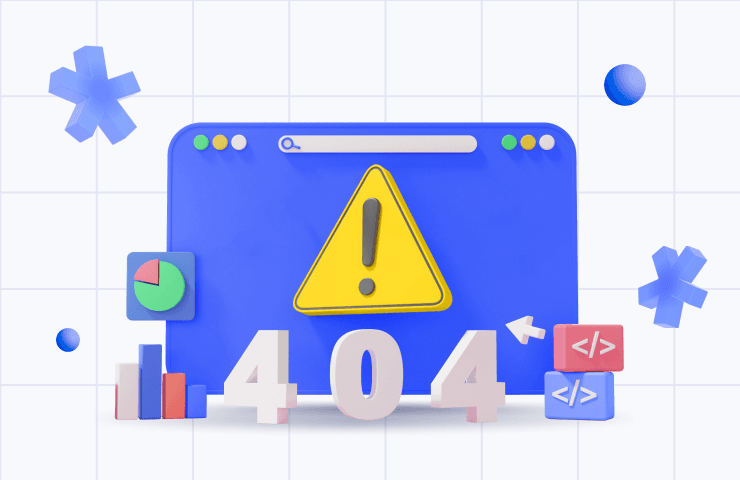What Is Data Loss and How to Prevent It?
Data loss refers to the loss of crucial or sensitive information that has been stored on a computer or network. There are various external factors that can cause data loss, including power outages, theft, and phishing attacks that target a large group of people. Data can also be lost due to human errors, such as opening an email with a virus, expired antivirus software, or accidental damage to the computer, like dropping it or spilling liquid on it. To safeguard their business, companies can implement data loss prevention measures in their software and establish guidelines for their staff to securely access and exchange company documents. To safeguard yourself, it is important to keep virus and malware protection up-to-date and steer clear of opening emails from unknown sources.
Basics
Data loss is a critical issue that arises when essential or sensitive information stored on a computer becomes compromised. This can be attributed to various factors such as theft, human errors, malware, viruses, power failures, physical damage, or equipment malfunction.
Numerous factors contribute to data loss incidents, including theft of laptops, unintentional file deletion or overwrite, power disruptions, liquid spills, and the sudden failure or deterioration of hard drives. Regular file backups are crucial to mitigate the consequences of data loss as they enable data recovery in the event of such incidents. However, for data that has not been backed up, professional recovery services may offer a chance to restore the lost information.
It is important to note that data loss is not limited to individual computers and devices; servers are also susceptible to such occurrences.
What Is Data Loss?
In data loss prevention, it is essential to understand the sources of computer viruses and malware infections. Among the most prevalent culprits are social engineering and phishing attacks, which exploit vulnerabilities and compromise data integrity. These attacks can even encrypt valuable information, demanding a ransom for its release. While antivirus software can offer protection against software vulnerabilities, it may not be entirely effective against phishing and social engineering attacks.
To fortify defenses against such threats, it becomes imperative to raise awareness and educate individuals about the intricacies of these malicious activities. By fostering a culture of caution, users can significantly reduce their chances of falling prey to these attacks. This includes exercising discretion when interacting with email links and downloading attachments, as these actions can serve as gateways to data loss.
By fostering a vigilant mindset and equipping individuals with the knowledge to identify and thwart potential threats, we can effectively safeguard valuable data from falling into the wrong hands.
Data Loss: Common Causes
Data loss can occur through various channels, each posing a distinct threat to valuable information. Power surges and outages pose a significant risk, as sudden shutdowns can corrupt files and render computers inoperable. To avoid such complications, it is essential to adhere to proper shutdown procedures during power disruptions.
Liquid spills, particularly acidic or sugary substances, can seep into laptop keyboards and inflict irreparable damage on internal components. To prevent liquid-related mishaps, it is advisable to keep liquids away from laptops or employ spill-proof travel mugs.
Mechanical failures of hard drives can transpire due to wear and tear, overheating, electrostatic discharge, or accidental drops. Additionally, file corruption, improper drive formatting, or software malfunctions can lead to failures. These failures may occur suddenly or manifest gradually through symptoms like repeated crashes, sluggish performance, or unusual noises.
Safeguarding against such data loss necessitates regular backups. By creating duplicate copies of hard drive data, individuals can mitigate the risks associated with these scenarios. For instance, one may opt to back up personal files from a desktop computer onto both an external hard drive and a cloud-based storage solution. This redundancy strategy, spread across different platforms, bolsters resilience and minimizes the likelihood of irreversible data loss.
Data Loss: The Human Element
In the realm of data protection, one of the primary concerns for businesses revolves around mitigating risks stemming from their own employees. It is crucial for companies to establish measures that govern the sharing, usage, storage, and transmission of business documents across various platforms, including email attachments, smartphones, laptops, flash drives, and cloud storage. This ensures comprehensive protection against data loss.
Safeguarding data holds immense significance for organizations, as it preserves their privacy, protects intellectual property, and ensures compliance with government regulations. To fortify their defenses, companies can leverage data loss prevention (DLP) features integrated into software offered by renowned providers like Google and Microsoft. Additionally, there exist comprehensive data loss prevention suites provided by industry leaders such as Clearswift, Symantec, Digital Guardian, Forcepoint, McAfee, and more.
By implementing robust strategies and utilizing cutting-edge tools, businesses can proactively address internal vulnerabilities and fortify their data protection framework.
Conclusion
Data loss is a persistent and multifaceted challenge that businesses and individuals must navigate in today's digital landscape. Whether caused by external factors like power outages, theft, phishing attacks, or internal risks such as human errors and hardware failures, the consequences of data loss can be severe. To mitigate these risks, it is crucial to adopt preventive measures such as regular data backups, up-to-date antivirus software, and employee awareness training.
For businesses, implementing data loss prevention measures and leveraging software solutions from reputable providers can significantly enhance their defense against data breaches and unauthorized access. Additionally, fostering a culture of security consciousness among employees, including exercising caution in handling emails and adhering to safe data-sharing practices, is vital in safeguarding sensitive information.
At the individual level, maintaining robust cybersecurity practices, such as keeping antivirus software updated and refraining from opening suspicious emails, is essential to minimize the risk of data loss and protect personal privacy.
By remaining vigilant, proactive, and well-informed about the evolving threats and preventive measures, we can collectively safeguard valuable data and preserve the integrity and confidentiality of information in our increasingly digital world.
